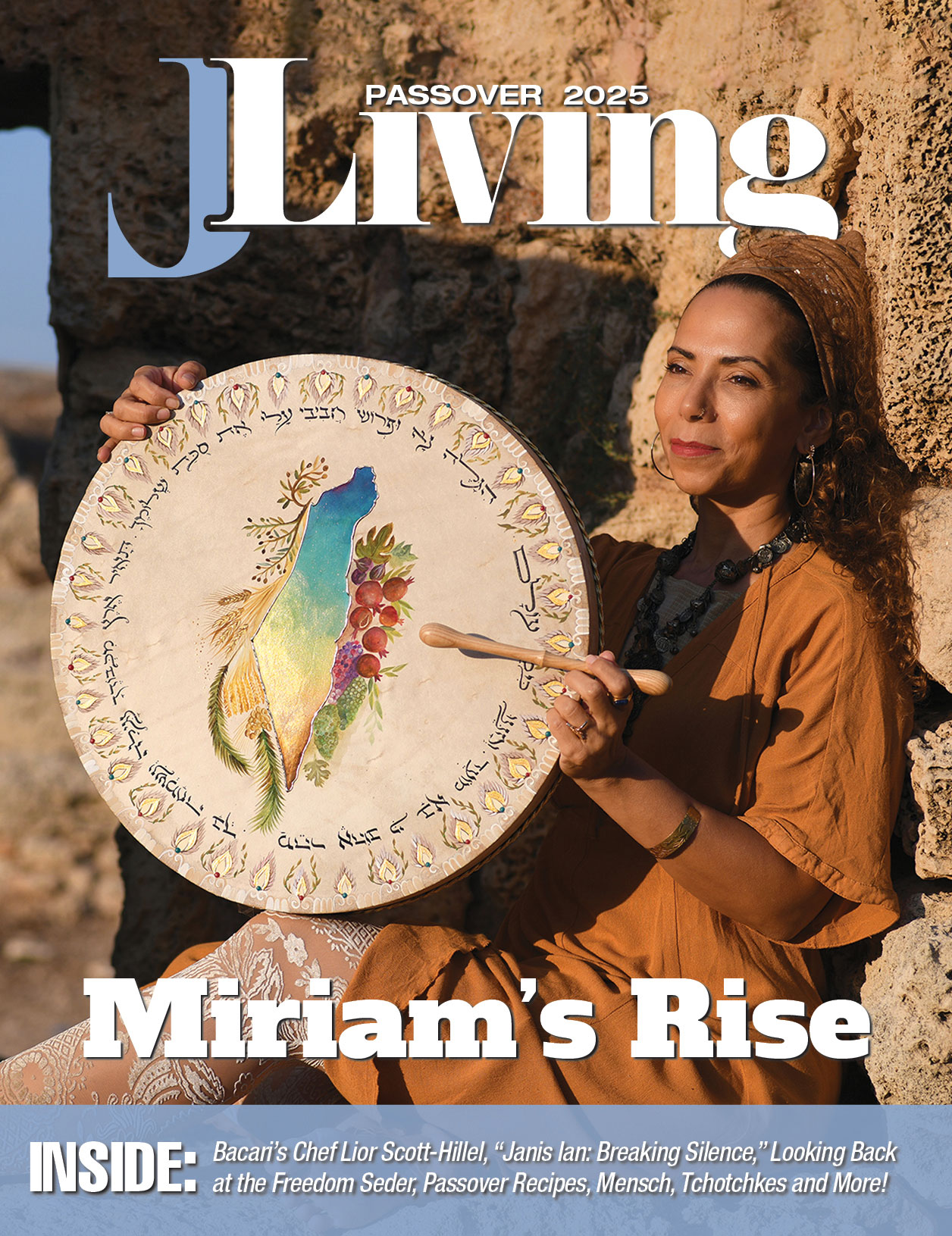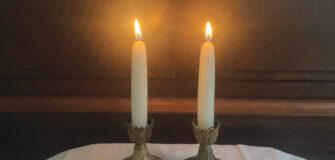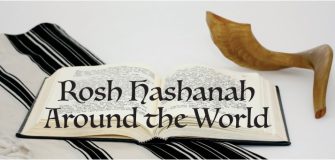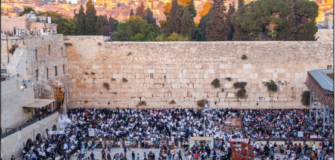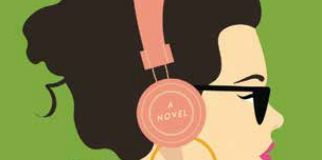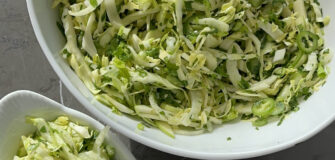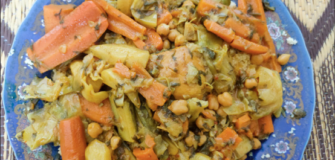Keeping it Sweet with Local Honey

The simple act of drizzling some honey over a wedge of apple for a sweet year doesn’t hint at its incredibly layered story—the complicated journey it takes to get it to the table and its incredible nutritional and healing properties.
Many of us partake of honey on Rosh Hashanah as a symbol for sweetness in the coming year. Although to us that means honey from bees, it’s possible that earlier versions of this tradition may have involved date or even grape honey, which were actually syrups made from the fruits.
Debates on whether honey is kosher (mostly yes), or vegan (not so much) take up a lot of space on the internet. What’s not up for debate is the wonder of honey: as a food, as a sweetener, as a healer, and even as a process.
For those not allergic to bee pollen, the value of raw, organic honey cannot be underestimated. According to the Mayo Clinic’s website, “Honey contains mostly sugar, as well as a mix of amino acids, vitamins, minerals, iron, zinc and antioxidants. In addition to its use as a natural sweetener, honey is used as an anti-inflammatory, antioxidant and antibacterial agent.” It has been shown to have antidepressant, anticonvulsant, and anti-anxiety benefits. Medical grade honey can treat burns and other topical wounds.

The deeper you look, the more you find benefits for human well-being from the work of bees. Honey offers immune protection, can soothe coughs, may reduce the risk of heart disease and helps relieve gastrointestinal disease. Anecdotally, many people find that raw local honey helps with seasonal allergies. According to beekeeper Bruce Lampcov, founder of Malibu Honey, “If it’s raw honey, you’ll be ingesting small amounts of pollen that’s from the local plants,” which is reported to assist with allergies and stomach issues.
In a world where bee populations are decreasing, it seems like a mitzvah to be a beekeeper. Preliminary results from the Bee Informed Partnership’s 16th annual United States Honey Bee Colony Losses Survey 2021-2022 show a 39% decrease in managed honeybee colonies for the year. This loss is lower than the previous year but reflects the average percentage over the last 11 years.
According to Los Angeles County Beekeepers Association Representative at Large Jay Weiss, “Honeybees should be on the endangered species list,” adding, “If beekeepers didn’t do what we do, the honeybee population would completely collapse in a few years. Honeybees are on life support, due to many factors. We need to care for our environment with intention. “
Pesticides are a huge factor in the decrease of the honeybee population. Eli Lichter-Marck of Eli’s Bees recently lost 70 hives to pesticide contamination. “Every year there’s something,” says Lichter–Marck, whose hives suffered tremendous losses from the Woolsey Fire. “Every hive that dies is like a knife in the heart. It hurts, but it’s part of raising animals, that they die.” His takeaway, “Life is fragile, and the resilience of the bees can be an inspiration, but when things happen that are tragic and horrible—and this is a powerful thing for Jews to think about—the only thing you can do is move on, and build, and focus on life the joy of life.”

Without bees, we certainly lose honey, but we also lose the pollination they perform, which will lead to a decline in fruit quantity and diversity. “Bees are a completely essential part of the process of growing food. Without bees, we wouldn’t have any food. Bees are the most efficient pollinators—you wouldn’t be able to grow any fruit at all without bees,” says Lampcov. Honey is a lot of work for bees. “Tens of thousands of bees are making literally millions of trips to flowers to get their nectar,” notes Lampcov. Although, “not intentionally gathering pollen, they’re ingesting nectar, and pollen gets stuck to them. The nectar gets cured and turns into honey. “
While each Beekeeper has a different calling which led them to beekeeping, Lampcov has a connection to honey through his spiritual upbringing. “The only time I ever ate honey was the High Holidays,” he says. In college, he learned beekeeping from a friend’s father. After settling in Malibu, he wanted, “to experience something with the land that was more than having a backyard or a garden,” so he returned to beekeeping.
The interest, appreciation, and gratitude that Eli’s Bees receives from the community is a powerful motivator. So is Tikkun Olam, a concept that is important to Lichter-Marck, “I’ve always been seeking ways to do that, ways that I thought were important, and I just happened to find this one, and I think it’s valuable.” ‘
So, which of the honeys do our local beekeepers recommend for a sweet year?
Lampcov’s choice is sage honey, “Sage is uniquely Californian—if you have sage honey, it’s local. Sage is such a big part of our Southern California ecosystem.” Sage honey has, “a very light taste, great for kids that aren’t used to honey. It doesn’t overwhelm any of the other flavours.”

Lichter-Marck echoes this choice, calling sage honey, “floral, rather than syrupy.” He says, “The sage honey is pretty magical. It only really occurs in good rain … If it doesn’t rain a lot, you’re not going to make a lot of it.”
Jay Weiss from Pasadena Urban Beekeeping points to the locality of the honey as the single most important factor, ensuring purity and trust. When you buy local honey, you not only get a delicious and healthy product, you get to support local beekeepers and the environment. Happily, local honey options abound in Southern California, so you’ll be spoiled for choice!

If you’re stocking up for your holiday traditions, you can keep it local this year by sourcing your honey from one of these local vendors. Many Farmer’s Markets have local honey stands and local honeys are available at Whole Foods, Gelson’s, Erewhon, and more local grocers. If you’re feeling like the time is right to dip into beekeeping, there are resources here for that, too!
Los Angeles County Beekeepers Association
Established in 1873, “Los Angeles County Beekeepers Association is the oldest beekeeping association in the country,” says Representative at Large Jay Weiss. LACBA is a great place to start if you’re interested in beekeeping. Weiss says, “It is a very supportive community. We love new beekeepers and support everyone.”
For resources and education on beekeeping, a list of local honey products available for sale and more, visit the LACBA site.
losangelescountybeekeepers.com
Bare Bees Honey
Kevin Heydman, president of LACBA, is the beekeeper behind Bare Bees. They offer local raw honey from Los Angeles, Riverside and San Diego Counties at Farmer’s Markets and by request. If you are ever in a jam, Bare Bees can also help you with hive removal.
barebees.com
Bill’s Bees
In 2008, Bill’s Bees was honored by Los Angeles Magazine as the “Best Local Honey in Los Angeles.” With over 70 years of experience between them, beekeepers Bill and Clyde are a wealth of information. They enjoy helping new and experienced beekeepers learn the craft and care for their hives. Bill’s Bees also sells products including pure beeswax, candles.
billebees.com
Eli’s Bees
Eli’s Bees is a father-and-son beekeeping operation based in the coastal canyons of Santa Monica. Eli’s Bees honey employs a small batch philosophy where each honey varietal sold is packaged and labelled notating the single location and particular time of the year that the honey was harvested.
elisbees.com
Honey Pacifica
Honey Pacifica is a family venture that started in 1979 by beekeeper Nick Poto and his wife Jean. The business has remained in the family and is now managed by their sons. The first raw, local, organic honey on the shelves of Whole Foods, Honey Pacifica is also available at many local Farmer’s Markets including Beverly Hills, Venice, and Santa Monica. Check their website for details.
honeypacifica.com

Malibu Honey
Malibu Honey is a family venture started by Bruce Lampcov. It now includes his wife Mette, their two children, and two friends. Since 2011, they’ve been harvesting honey in the mount ains of Malibu. Over the last decade they have expanded and have hives in various areas surrounding Los Angeles. malibuhoney.com
Pasadena Urban
Beekeeping Jay Weiss is the beekeeper behind Pasadena Urban Beekeeping. He has been keeping bees for 15 years and supports the beekeeping community by mentoring, teaching and doing bee removals. Honey is available for purchase on the Pasadena Urban Beekeeping site.
enaurbanbeekeeping.com

